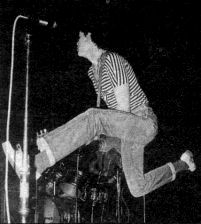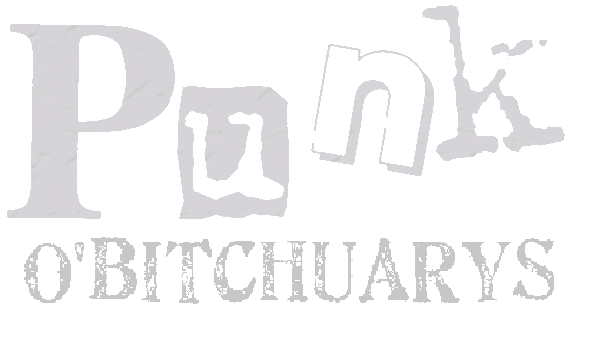| Stewart Adamson - The Skids |
| INTO THE VALLEY Skids Legendary Axeman Has Been Found hanged! William Stuart Adamson, singer, guitarist and songwriter, born April 11 1958; died December 16th 2001 Few rock stars were as un-showbizzy as Stuart Adamson, who has been found hanged in a hotel room in Hawaii, aged 43. Although his current band, Big Country, achieved major international success during the 1980s, for a time rivalling fellow Celtic big-anthem acts U2 and Simple Minds, Adamson remained doggedly committed to his working class Scottish roots. At the time of his death, he still owned a pub in Dunfermline. Born in Manchester, but growing up in the mining village of Crossgates in Fife, he was introduced to folk and country music by his parents. He was alerted to punk when he saw The Damned play in Edinburgh in 1976, an event which spurred him to abandon plans to become an environmental health inspector and form his first band, Tattoo. This soon evolved into punk-pop outfit The Skids. Fronted by extrovert vocalist Richard Jobson, The Skids signed to Virgin Records in 1978 and enjoyed a string of successes, especially the soaring hit singles Into The Valley and Masquerade. But even at this early stage, Adamson was struggling to cope with the pressures of success, and disappeared temporarily halfway through recording sessions for The Skids' debut album, Scared To Dance. Jobson and Adamson went their separate ways in 1980 and the Skids split. Adamson set about building a new band which he felt more accurately represented his musical tastes and personal beliefs. He recruited fellow guitarist Bruce Watson alongside a trio of other musicians to form the first version of Big Country. However, their first few performances quickly showed up glaring inadequacies, and Adamson fired everyone except Watson and brought in session players Tony Butler on bass and drummer Mark Brzezicki. Their first album, The Crossing (on Phonogram) in 1983, scorched swiftly up both the British and American charts. The hit singles In A Big Country and Fields Of Fire epitomised the sound Adamson had been looking for. The songs were big, bold and suffused with a sense of the great outdoors, not least because of the signature twin-guitar sound, which journalists routinely likend to bagpipes, to Adamson's mounting exasperation. Considering the band liked to use stage backdrops of Highland scenery, he only had himself to blame. The Crossing earned Big Country two Grammy nominations and sold over 3m copies. Subsequent releases Steeltown, The Seer, Peace In Our Time and No Place Like Home all earned gold discs in the UK, and took the band's total album sales over the 10m mark. Meanwhile, they became a regular fixture on the big-event celebrity circuit, joining the massed finale at Live Aid in 1985. Lacking the stylistic range of a U2, Big Country gradually found their popular appeal waning. Their 1988 trip to play at the Moscow Sports Stadium with a planeload of journalists in tow backfired disastrously and almost bankrupted the band. They enjoyed a mild commercial revival with The Buffalo Skinners in 1993 (on a new label, Compulsion), and the band continued to tour and pull large crowds until 1999. However, Adamson found it difficult to adjust to Big Country's dwindling status, and depression exacerbated his long-standing drink problem. Five years ago, the breakdown of his first marriage, to Sandra, prompted him to move to Nashville, where he met beauty parlour owner Melanie Shelley, whom he married last year. However, the relationship quickly failed, driving Adamson further into alcoholism. He is survived by his son Callum and daughter Kirsten. ? |



